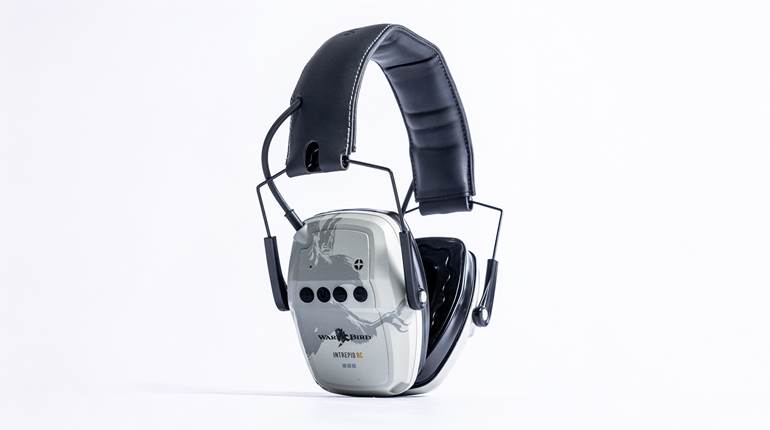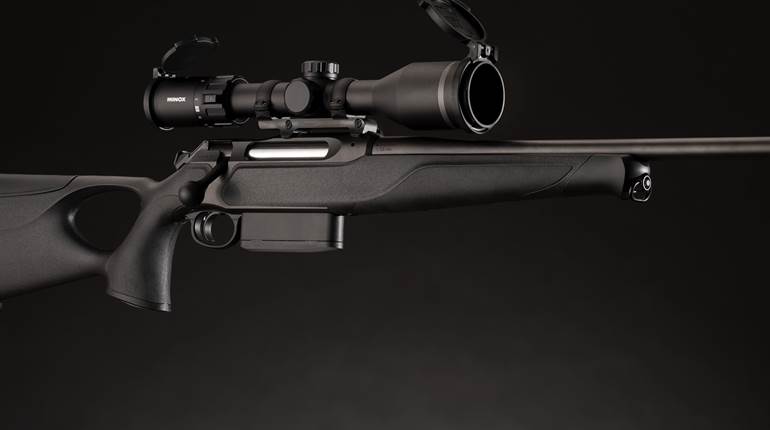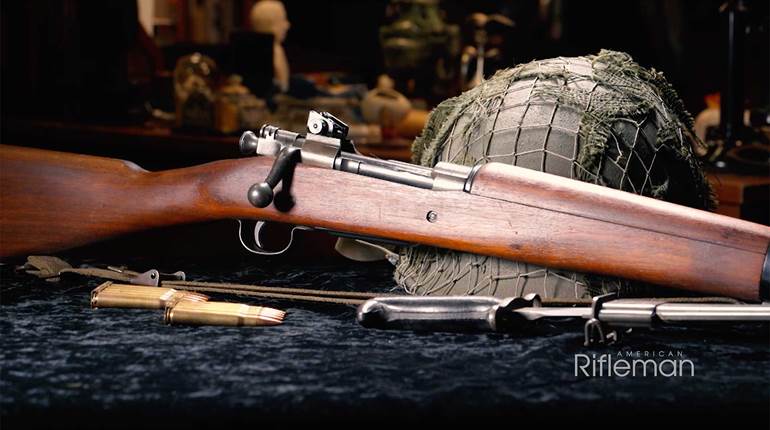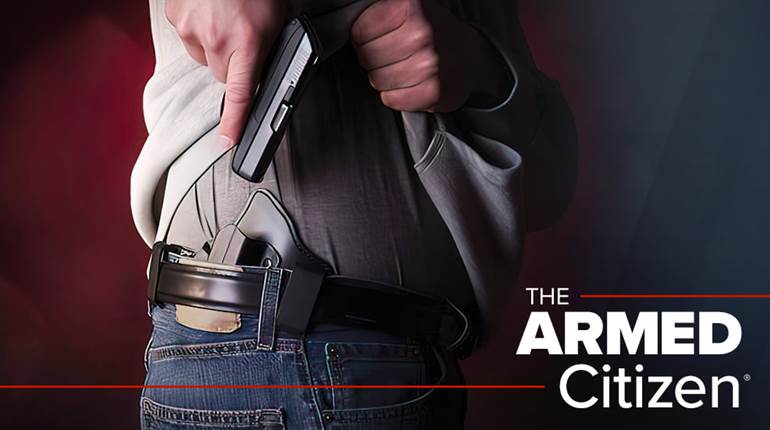
With a long and storied history in the United States, lever-action carbines continue to be favorites among modern American shooting sports enthusiasts for use as brush guns, deer-hunting rifles and, occasionally, for home defense. Chambered in centerfire and rimfire cartridges, these classic long guns are available from various importers and American manufacturers. In recent years, we’ve seen the rise of a previously uncommon type of lever-action, namely, models chambered to fire 2.5" .410-bore shotgun shells. This evaluation takes a closer look at the 24"-barreled LVR410, which is being imported by GForce Arms, Inc. of Reno, Nev.
The LVR410 shotgun’s action, design cues and general layout are unmistakably inspired by the iconic Winchester 1894, a configuration that is highly revered by lever-action rifle fans. GForce procures these guns from the Turkish manufacturer Radikal Arms. Turkey is among the largest exporters of shotguns in the world, as Turkish long guns tend to have lower price tags that can make these feature-rich models even more attractive to fans of the platform.

This shotgun is built around an open-top aluminum receiver with distinctively modern, curving lines on the left and right sides. In this case, the receiver, steel lever loop and aluminum fore-end band are treated with a matte-silver Cerakote finish; this contrasts nicely with the matte black of the other metallic appointments, which sport non-reflective blued or blacked finishes. The right side of the receiver has been beveled around the loading gate to ease the loading and unloading of shells.
The shotgun ships with a rifle-type sight system installed. The white-dot, square-notch rear sight is fully adjustable for elevation and windage, while the front sight blade features a HIVIZ red fiber-optic pipe. A round-profile barrel is available in either 20" or 24" lengths. Our test sample was an example of the latter, with the interior of the muzzle threaded to accept removable Beretta/Benelli Mobil-style choke tubes. Three are provided: full (0.398"); modified (0.402"); and cylinder (0.409"). All testing was conducted with the full choke installed.
A second aluminum barrel band, located just behind the front sight, is matte black to match the blued-steel barrel and the aluminum tubular magazine. The magazine of the 24" model holds eight rounds of ammunition, plus one in the chamber. A threaded cap allows the magazine to be removed easily for cleaning. The interior of the cap has a threaded port that supports a removable 17.5"-long steel plug that limits the magazine capacity to two rounds to comply with regional hunting regulations. The uncheckered fore-end is made from a handsome piece of Turkish walnut and exhibits a clean, tight fit to the receiver and barrel.
Like other 1894-type lever guns, the exposed hammer must be cocked either manually or by cycling the action in order to fire. The standard-profile lever loop houses a smooth-face steel bow trigger. It exhibited a short 1/2" take-up before breaking cleanly at 2 lbs., 15 ozs., of pressure. The trigger then traveled another 1/4" after the break.

The LVR410’s safeties include a rebounding hammer and a lever safety that protrudes from the lower tang. After the hammer falls forward to ignite the chambered cartridge, it automatically springs back away from the firing pin approximately 0.25" where it locks into place. This prevents the hammer from coming into contact with the firing pin if the hammer is bumped or the shotgun is dropped. The visible portion of the lever safety is a small stud located about an inch behind the trigger. Much like the grip safety of an M1911 pistol, the stud must be fully engaged by pressing the lever loop firmly against the shoulder stock with the shooting hand in order for the gun to fire.
The Turkish walnut shoulder stock has a classic straight-grip profile and a 14.25" length of pull. It’s capped with a polymer plate that supports a thin, textured, soft-rubber buttpad. The shotgun evaluated here weighed in at 6 lbs., 1 oz., and exhibited proper fit and finish throughout.
 It’s worth noting that not all .410-bore shotshells are created equal. American-made cartridges from the major manufacturers—including Federal, Remington and Winchester—tend to have consistent external dimensions that contribute to more reliable feeding. But imported shotshells in this class often exhibit minute differences in shape, which may or may not be a good fit for a particular gun. The shells used for informal and formal testing with this shotgun were produced by American makers—all of them fed, fired and ejected properly without any issues.
It’s worth noting that not all .410-bore shotshells are created equal. American-made cartridges from the major manufacturers—including Federal, Remington and Winchester—tend to have consistent external dimensions that contribute to more reliable feeding. But imported shotshells in this class often exhibit minute differences in shape, which may or may not be a good fit for a particular gun. The shells used for informal and formal testing with this shotgun were produced by American makers—all of them fed, fired and ejected properly without any issues.
The manufacturer is clear on two points regarding factory-fresh LVR410 shotguns. First, it recommends the gun be broken down, thoroughly cleaned and checked before its first trip to the range. This is good advice for any brand-new firearm to ensure there is not grit or metal shavings in the action left over from the manufacturing process. Secondly, this lever-action will require a break-in period in order to smooth out the action and feeding.
Based on this information, it was not a surprise when the LVR410 was a bit stiff to begin with. But within the first 25 rounds, it was already showing signs of settling into its routine; by the end of the evaluation, it was swinging along nicely. Getting a feel for working with the lever safety will take a bit of practice. It’s by no means a difficult feature to master, but it is something to note for those who are new to the platform. Using the sights as configured from the factory resulted in the shot patterns landing 5.5" below the point of aim on average. Adjusting the rear sight after formal testing at 25 yards centered the patterns on target.
Smooth-bore lever guns chambered for .410-bore shells are lean, lightweight and useful for a score of sporting and hunting applications. They are especially handy for those who already use lever guns for other outdoor endeavors. The GForce Arms LVR410 exemplifies the enjoyable shooting and utility this class of shotgun has to offer and does so at an affordable price.



































